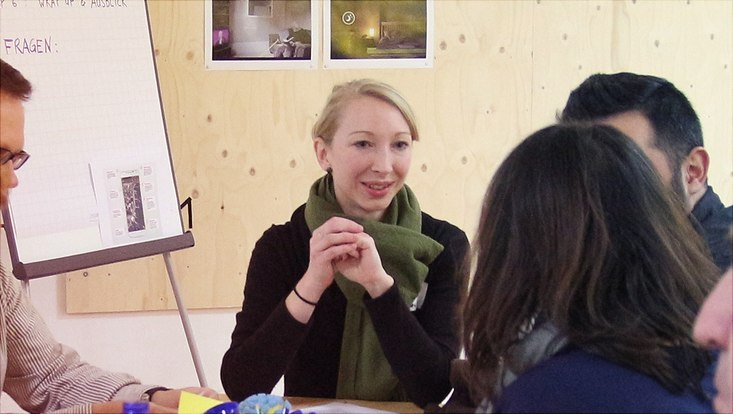Stay in the loop
You want to stay up to date about the HRA’s offerings? Follow us on Twitter and Facebook or sign up for the HRA newsletter!
Photo: HRA
31 May 2022

Photo: TUM, IuP
In our monthly series People You Should Know, we introduce people from Hamburg’s academic community who may be helpful contacts. It also gives you the opportunity to learn more about various aspects of research and higher education management. Today we’re speaking with Claudia Mendes, advisor for collaborative research at Universität Hamburg’s Knowledge Exchange Agency.
I’ve been at the newly-founded Knowledge Exchange Agency in the area of collaborative research since October 2021. My colleague Ursula Caser and I support and advise researchers on how to involve interdisciplinary or non-academic actors in their research processes, for example in the form of citizen science, living labs or participatory design. We sit down with early career researchers, either in workshops or directly, to go through their projects with an eye to the potential for such activities. Together, we then develop formats tailored to their topics, research objectives, or methods. But we also serve as advisors for those researchers who are already working in a transdisciplinary collaboration, as they are not always easy to navigate for early career researchers.
I’m currently finishing my doctorate in Science & Technology Studies, for which I did both, collaborative ethnographic research, as well as creating and conducting co-design processes between industry, public administration, civil society experts and local communities. I also taught classes enabling students to develop and apply co-creative formats in a reflexive manner. So I’ve been involved in the areas of co-creation and multi-stakeholder collaboration, both practically and in research and teaching, for quite a while. The somewhat unusual profile of an advisor for collaborative research at the Knowledge Exchange Agency seemed perfect for me, since I’d be able to do two things: assist researchers in applying co-creative methods, and also critically study each framing, develop it further, and learn from it.
Use the opportunities that co-creative approaches offer. 1. Glimpses into other types of expertise help to enrich your own knowledge and way of thinking, or perhaps to question them. 2. When you experiment with collaborative methods, you can expand your communication and interdisciplinary skills. They are becoming more and more important in the workplace, whether that’s within or outside of academia. 3. In addition to the challenges that are part and parcel of co-creative research, it’s fun!
You want to stay up to date about the HRA’s offerings? Follow us on Twitter and Facebook or sign up for the HRA newsletter!